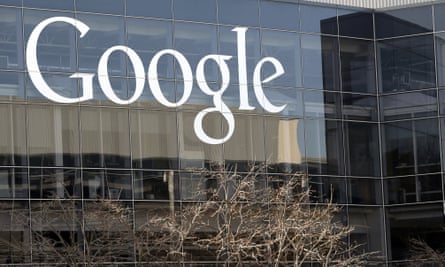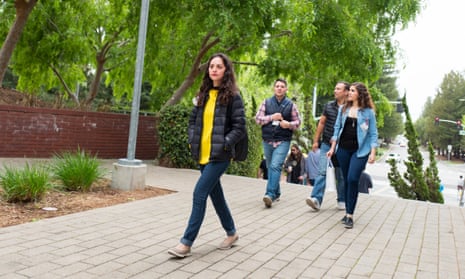California courts have allowed female Google employees to move forward with two major lawsuits alleging patterns of sexual harassment and pay disparities, which civil rights attorneys say could uncover “widespread” discrimination at the tech company.
A San Francisco judge has approved a class-action complaint alleging that the Silicon Valley corporation systematically underpays women in engineering, management, sales and education, meaning Google will have to publicly respond to claims that thousands of women have been denied proper compensation.
A separate case – centered on accusations that a “bro-culture” enabled daily sexual harassment of a female software engineer – is now also advancing as a class action, which could force Google to address sexual misconduct allegations in open court instead of through private arbitration.
A Google spokeswoman declined to comment on the suits, but the company has previously said it has “strong policies against harassment” and has eliminated its pay gap.
The court battles come at a time when many industries are facing intense scrutiny as women speak up about abuse and pay gaps in male-dominated workforces. The tech sector has been subject to a flurry of claims and lawsuits, and Google in particular has repeatedly fought efforts to disclose its wage data and sought to block litigation from progressing in court.
Both California cases could raise the curtain on Google’s treatment of women.
Attorneys in the wage case have alleged that Google “segregates” women into lower-paying positions, promotes women at slower rates and pays them less than men for similar or equal work. Google – which has continued to argue that its own analysis has found no “statistically significant” pay gap – sought to have the class action and claims of “intentional discrimination” dismissed, but a judge sided with the women in a Tuesday ruling.
“The policies and practices alleged impacted many thousands of women, and it is appropriate for all those women to have their day in court,” Jim Finberg, attorney for the women, said in an interview. “If they don’t have anything to hide, they should give me all their payroll data … I assume they would want an independent expert to give them a clean bill of health.”
Finberg has argued that the compensation records would reveal massive pay violations, which US labor department investigators have also alleged.

In the second case, Loretta Lee, a software engineer at Google from 2008 to 2016, alleged that she faced “lewd comments, pranks and even physical violence” on a daily basis, including men spiking her drinks with alcohol, sending her sexually suggestive messages and, in one case, slapping her in the face. She also alleged wrongful termination.
Last week, Google argued in a court filing that Lee must resolve the case in private arbitration, a tactic that has faced significant backlash across the country in the wake of the #MeToo movement.
Arbitration clauses prevent victims of sexual misconduct and discrimination from bringing lawsuits forward in court, forcing them to resolve disputes behind closed doors and often settle with non-disclosure agreements. Critics have argued that this allows serial offenders to avoid consequences, and Microsoft announced it would eliminate forced arbitration last year, recognizing that the practice can silence victims.
Richard Hoyer, Lee’s attorney, said when harassment victims are forced into arbitration, which is often conducted by older white men, the women face a two-thirds reduction in average recoveries compared with jury trials. That’s why Hoyer refiled Lee’s case as a class action, writing in a complaint: “It is no secret that there are widespread complaints about harassment, verbal, and even physical assault on women throughout the company.”
Brian Lee Johnsrud, an attorney for Google in the Lee case, declined to comment on the specific case, but defended arbitration. “Arbitration has been in use for literally decades and … there are many, many talented neutral arbitrators,” he said.
He added that arbitration is more efficient and streamlined and often involves former judges and arbiters with specific expertise. He declined to say whether Google would seek some kind of confidentiality agreement from Lee in arbitration.
Asked if Google would consider following Microsoft and other tech leaders pushing for an end to forced arbitration, Johnsrud replied, “that’s a question for Google.”
Hoyer said in an interview: “We hold out hope that Google will waive the arbitration agreement and do the right thing … Let’s hear their defense in public in a court.”
The Google cases have advanced the same week Uber agreed to pay $10m to settle a class-action discrimination suit on behalf of women and software engineers of color.






